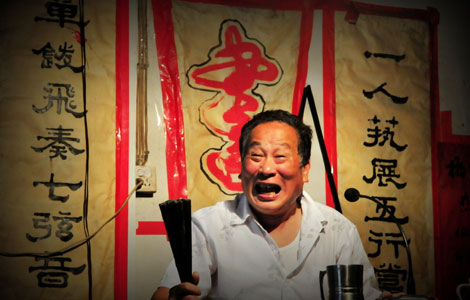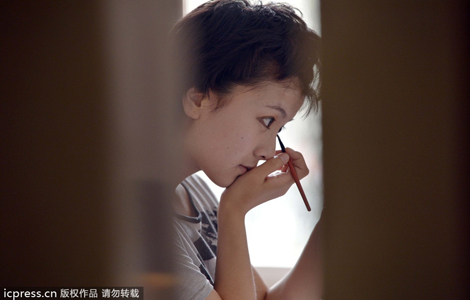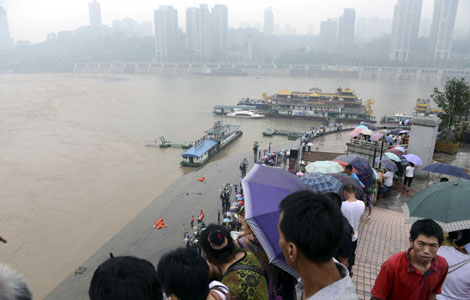
BEIJING -- Nearly a month after the European Union decided to slap tariffs on solar panels imported from China, the two sides are racing against the clock to avert a showdown that puts $27 billion?dollars in trade and more than 600,000 jobs at risk.
"The EU's position is unchanged, which is to settle the dispute through negotiation," EU Ambassador to China Markus Ederer said Monday during a conference on China-EU relations at the Delegation of the European Union to China.
Ederer is the latest EU official to express the bloc's willingness to engage with China in negotiations to prevent the tariff on all Chinese solar panel exports to Europe, which is currently set at 11.8 percent, from rising to an average of 47.6 percent after August 6.
"I can not predict the result, but I see two sides who have a lot of goodwill to negotiate," Ederer added.
In the 27th EU-China Joint Committee, an annual meeting on trade and economics held on June 21, EU Trade Commissioner Karel de Gucht said technical-level discussions toward a negotiated settlement that opened in Brussels at the start of the week were continuing in Beijing.
In a hint of progress made during the talks, de Gucht said "both sides have now engaged in a sincere way to work towards an amicable solution."
The negotiation is focused on a price undertaking settlement, in which the two sides agree on a minimum price at which Chinese companies will export their solar modules, cells and wafers to EU member states.
If reached before the August 6 deadline, the deal will avert a heightened tariff that threatens to wipe out Chinese companies' presence in the world's largest photovoltaic (PV) markets.
Research by consulting firm IHS shows that Europe accounted for about half of the $77 billion dollar global solar market in 2012.
The EU's decision to impose the provisional duty on Chinese exports was strongly opposed by 18 member states, hundreds of European solar companies, 15 European photovoltaic associations and industry experts.
In an open letter addressed to the trade commissioner of the EU in April, 1,024 executives of nearly 700 European solar companies said a punitive tariff imposed on Chinese solar panel exports would hurt the solar industry and hinder the bloc's ability to meet its goal on renewable energy by 2020.
"Imposing additional duties is in blatant contradiction with the decrease in costs that is needed for the industry to survive," the letter said.
Shortly after the EU announced the tariff, China's Ministry of Commerce, at the request of Chinese wine makers, said it would launch a probe into the dumping of European wines, raising tensions that pushed China and the EU over the brink of a trade war.
China is the EU's second largest trade partner after the United States. Bilateral trade between the two sides have reached $546 billion dollars in 2012, with Chinese exports to the EU at $333.9 billion dollars, statistics from China's General Administration of Customs show.
China's trade volume with the EU shed 1.9 percent during the first quarter this year to $124.4 billion dollars. A tariff as high as 48 percent on solar products, once enacted, will likely to trigger probes into other products and thus cut deep into trade.
"I think we are highly complementary in trade and there is a lot of potential," Ederer said. "China and the EU both agreed, we have to devote a lot of attention to the price undertaking negotiation because we have to get it right."







